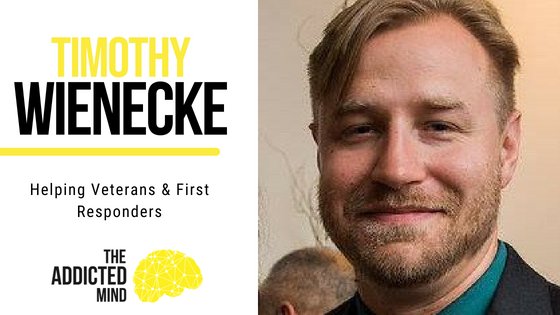We have all heard that 22 veterans commit suicide every day, but 11 of those are veterans of Vietnam and Korea, 6 of those are non-combat veterans, and 5 of them are combat veterans. Most people enter the military to run away from something (adolescence, family issues, educational pressures, etc.), and often the uniformity required by the service allows them to hide from those issues by focusing on the ultimate mission rather than themselves. When they get out, the issues pop back up and they have not been equipped to cope with things, so they find the ultimate escape in taking their own lives. Tim and his colleagues are committed to helping them find the resources and hope that they need.
While there are organizations on the national and local levels to support veterans, there are almost no support structures in place for first responders (firefighter, police officers, EMS professionals, ambulance drivers, dispatchers, etc.) as they experience frequent trauma which they are trained to just push to the side so they can do their jobs efficiently. While some of the calls they receive are routine and not traumatic, they have to be prepared for the worst every time, which takes a mental and emotional toll on them. There is a stigma around mental health in the first responder community which causes those individuals to either not seek treatment or do so in secret, fearing that they will be demoted to desk duty if their department finds out that they have anxiety in any form. Tim has found that providing these professionals with emotional regulation skills such as mindfulness and DBT followed by the tools that will help them answer the existential questions that may arise as a result.
Tim wants veterans and first responders to know that you do not lack purpose just because your service is over. There is always something in the world to connect to, and there is always help if you are willing to seek it.
Connect with Tim:
https://empoweredchangece.com/
https://www.facebook.com/Empowered.Change.CE/
timothywienecke@empoweredchangece.com
Be on the lookout for his upcoming podcast called Stories & Lessons!

